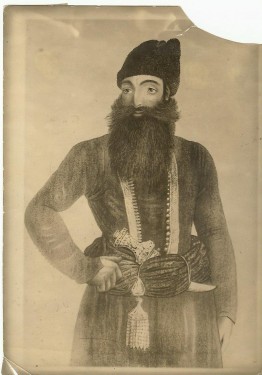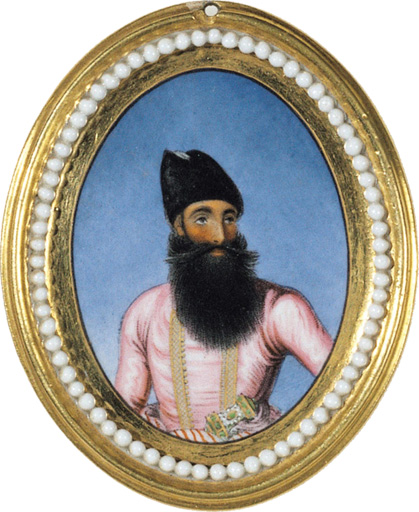<Back to Index>
- Chemist Antoine Laurent de Lavoisier, 1743
- Painter Nicaise de Keyser, 1813
- Field Marshal and Crown Prince of Persia Abbas Mirza, 1789


Field-Marshal Abbas Mirza (August 26, 1789 - October 25, 1833), was a Qajar crown prince of Persia. He developed a reputation as a military commander during wars with Russia and the Ottoman Empire, as an early modernizer of Persia's armed forces and institutions, and for his death before his father, Fath Ali Shah. Abbas was an intelligent prince, possessed some literary taste, and is noteworthy on account of the comparative simplicity of his life.
He was a younger son of Fath Ali Shah, but on account of his mother's royal birth was destined by his father to succeed him. Entrusted with the government of a part of Persia, he sought to rule it in European fashion, and employed officers to reorganize his army. He was soon at war with Russia, and his aid was eagerly solicited by both England and Napoleon, anxious to checkmate one another in the East. Preferring the friendship of France, Abbas Mirza continued the war against Russia's General Kotlyarevsky, but his new ally could give him very little assistance. Kotlyarevsky defeated the 10-times numerically superior Persian army in the Battle of Aslanduz and in October, 1813, Persia was compelled to make a disadvantageous peace, ceding some territory in the Caucasus (present-day Georgia, Dagestan, and most of the Republic of Azerbaijan).
He gained some victories during the 1821 war between the Ottoman Empire and Persia, resulting in a peace treaty signed in 1823 after the Battle of Erzurum. The war was a victory for Persia. His second war with Russia, which began in 1826, ended in a string of costly defeats and Persia was forced to cede nearly all of its Armenian territories and Nakhchivan. When the peace treaty was signed in February, 1828, Abbas Mirza sought to restore order in the province of Khorasan, which was nominally under Persian supremacy, and while engaged in the task died at Mashhad in 1833. In 1834 his eldest son, Mohammed Mirza, succeeded Fath Ali Shah as the next king. R.G. Watson (History of Persia, 128-9) describes him as “the noblest of the Kajar race”.
He is most remembered for his valor in battle and his failed attempts to modernize the Persian army. He was not successful in part due to the lack of government centralization in Iran during the era. Furthermore, it was Abbas Mirza who first dispatched Iranian students to Europe for a western education.